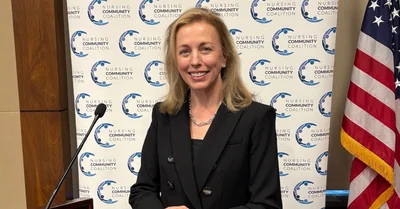The U.S. Department of Agriculture (USDA) today previewed plans to provide up to $250 million in assistance to rice farmers and what steps they can take to be prepared to sign up when the program is released later this spring. USDA is sharing information early so producers can prepare for program signup, which will include a pre-filled application in an effort to simplify and streamline the application process.
“USDA intends to use the streamlined approach it has utilized on other disaster programs to speed program implementation," said Agriculture Secretary Tom Vilsack. “By leveraging Farm Service Agency and Risk Management Agency data for the Emergency Relief Program, USDA saved farmers and staff significant time, and we think this approach will help us provide an initial payment more quickly with a final payment after the application period has closed. I appreciate Senate Agriculture Committee Ranking Member John Boozman’s assistance bringing together rice farmers from across the country to provide input on how to expedite and simplify the process.”
On Dec. 29, 2022, President Biden signed into law H.R. 2617, the Consolidated Appropriations Act, 2023, which provided the authority and funding for USDA to make payments to rice producers based on data already on file with the USDA, including planted acres and acres prevented from being planted.
What Farmers Can Do Now
The full details of the program and application will not be available until after a Notice of Funding Availability is published later this year in the Federal Register. But there is something farmers can do right now to be better prepared for the signup, if they qualify for a higher payment limitation.
The payment limitation for the program is set by law and is higher if the farmer’s average adjusted gross farm income (income from activities related to farming, ranching, or forestry) is more than 75% of their average adjusted gross income (AGI). Specifically, a person or legal entity with adjusted gross farm income of less than 75% of their overall AGI, cannot receive, directly or indirectly, more than $125,000 in payments. AGI is based on the three taxable years preceding the most immediately preceding complete tax year. Farmers with 75% or more AGI from farming qualify for a $250,000 payment limit.
Rice farmers may visit their local county office to submit the appropriate form and certification (FSA-510, Request for an Exception to the $125,000 Payment Limitation for Certain Programs), if they qualify for and want to seek the higher payment limit and get part of the paperwork done early. Farmers will still have a chance to fill out the AGI form during signup as well. The form should be filled out for the 2022 crop year.
Planned Application Process
After the official notice is published later this year, USDA’s Farm Service Agency (FSA) plans to mail prefilled applications to producers using information on file with USDA’s Risk Management Agency (RMA) or FSA, as reported by rice producers through their crop insurance agents or FSA county office. This streamlined application process will reduce the burden on producers and minimize errors due to manual data entries on the application form. More information will be provided when FSA announces the signup period in the coming weeks.
Program Payments
As directed by the omnibus legislation, FSA will calculate Rice Production Program (RPP) payments by multiplying the payment rate, individual average actual production history (APH), as reported to RMA, or county yield and an amount of certified rice acres determined by the number of planted acres and acres that were prevented from being planted. FSA plans to issue an initial payment to eligible farmers soon after applications are returned and a final payment after the sign-up has closed. Details on these procedures and the initial payment rate will be in the future notice.
USDA touches the lives of all Americans each day in so many positive ways. In the Biden-Harris administration, USDA is transforming America’s food system with a greater focus on more resilient local and regional food production, fairer markets for all producers, ensuring access to healthy and nutritious food in all communities, building new markets and streams of income for farmers and producers using climate smart food and forestry practices, making historic investments in infrastructure and clean energy capabilities in rural America, and committing to equity across the Department by removing systemic barriers and building a workforce more representative of America. To learn more, visit usda.gov.
USDA is an equal opportunity provider, employer and lender.
Original source can be found here.







